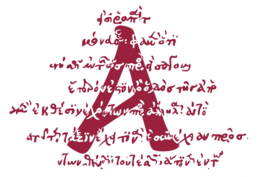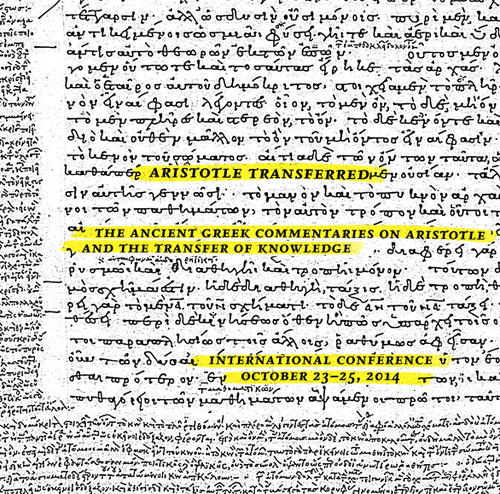Aristotle Transferred - The Ancient Greek Commentaries on Aristotle and the Transfer of Knowledge
23rd – 25th October 2014
Venue
Berlin-Brandenburg Academy of Sciences and Humanities (BBAW)
Thursday: Leibnizsaal (access Markgrafenstr. 38)
Friday and Saturday: Einsteinsaal (acess Jägerstrasse 22/23)
D-10117 Berlin (Map)
Abstract
The conference „Aristotle transferred“ challenges the concept of Richard Sorabji´s „Aristotle transformed“ (Cornell University Press, 1990), i. e. the idea of distortion and of creativity that emerges (only) through transformation by suggesting a different model and instrument: the concept of „transfer“. This is derived from the basic conception of scientific history in premodern times underlying the research unit „Episteme in motion“.
The motions in which the ancient tradition is concerned with Aristotle can be described as forms of transfer of knowledge rather than of transformation. Inside traditions knowledge is moved by acts of transfer of knowledge. Text and context as well as their institutional representations and media undergo certain dynamics that are constituted by different forms of change and evolution: among which many are moving only bit by bit or subliminally away from the readings of their predecessors. The motions are determined substantially by continuity and stability. The processes of gaining knowledge and attaining higher levels of differentiated understanding of texts and philosophical concepts develop gradually and while permanently reflecting on tradition, on their hermeneutical methods and on the context in and for which the applied knowledge is built.
The schools of philosophy in Late Antiquity take part in social, political, religious, general educational, cultural processes so that the teaching and learning in the different institutional frameworks themselves have to be analysed and viewed as acts of transfer. Emphasis needs to be put especially on the entanglement and mutual influence of institutions, hermeneutical process, media (especially oral learning and teaching), and philosophical thought.
Such readings of late ancient commentaries in Aristotle need to be systematical and historically comprehensive in order to present an overview of the different approaches towards hermeneutics, interpretation, the scientic and educational role of commentaries and philosophical teachers and their mutual influence in Late Antiquity. The conference want to meet this challenge.
Funded by
In Cooperation with


